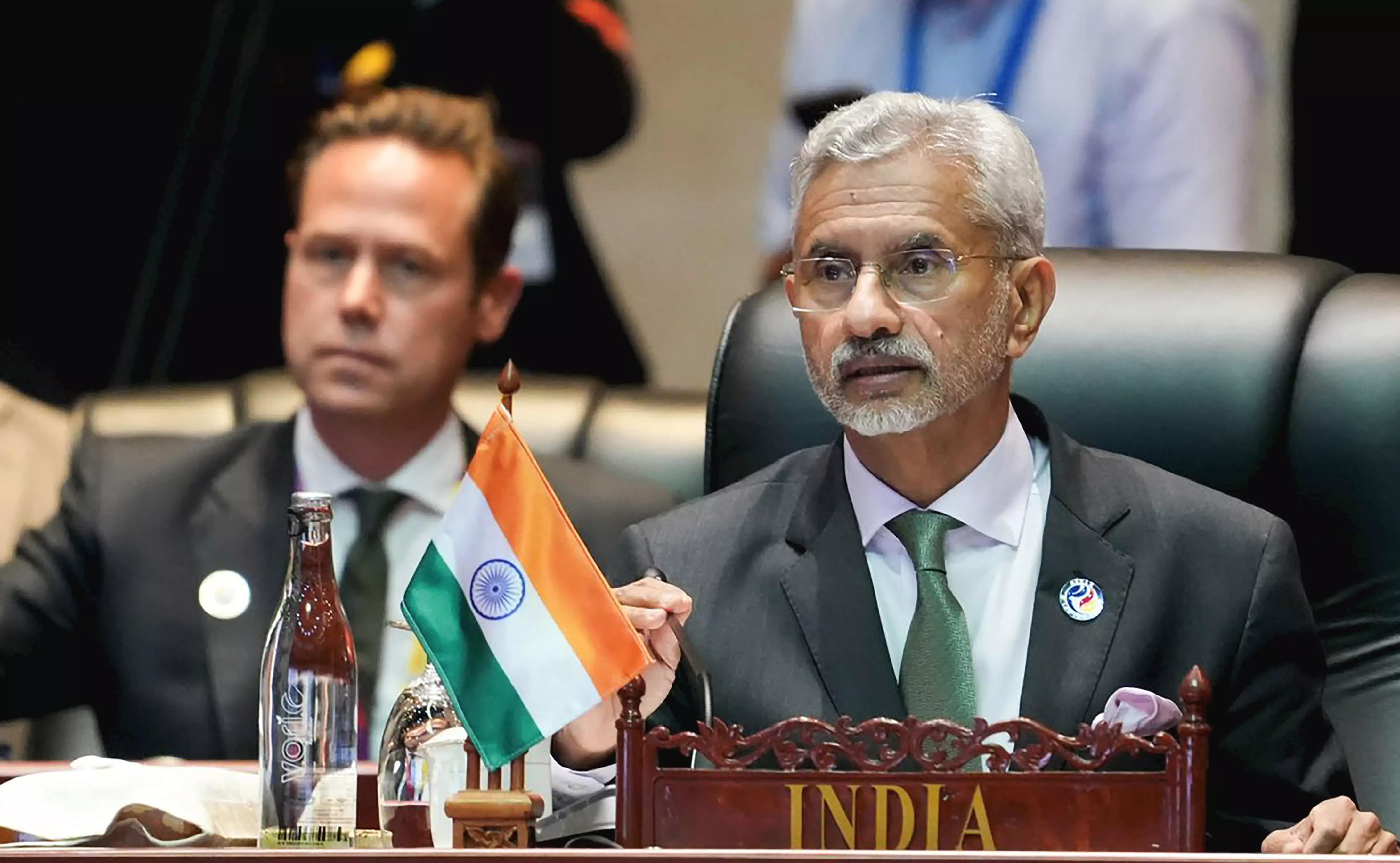India for securing sea lines of communication in SCS
Jaishankar seeks code of conduct in SCS amidst concerns over China’s maritime coercion

New Delhi: In a pointed message to China amidst its maritime disputes with Southeast Asian countries, external affairs minister S. Jaishankar emphasised the need for an “effective” code of conduct in the South China Sea, aligned with international law to secure sea lines of communication (SLOC) in the South China Sea which he said are critical for peace and stability of the Indo-Pacific region, amidst growing concerns about China’s maritime coercion.
SLOC is a term describing the primary maritime routes between ports, used for trade, logistics and naval forces.
Speaking at the 14th East Asia Summit (EAS) foreign ministers meeting in Vientiane, Laos, Jaishankar highlighted the critical importance of the SLOC. The “Code of Conduct should be substantive and effective, consistent with international law and should not prejudice legitimate rights and interest of nations not party to discussions,” he said.
Jaishankar's comments hold significance as his Chinese counterpart Wang Yi is also in Vientiane to attend the summit. The resource-rich South China Sea in the Indo-Pacific region is widely seen as a potential flashpoint for global conflict.
The EAS mechanism includes the 10-member ASEAN bloc, along with India, China, Russia, the United States, Australia, Japan, South Korea, and New Zealand.
In a subtle message to Israel, Jaishankar urged “de-escalation and restraint in Gaza,” reaffirming India's commitment to providing humanitarian assistance to Palestine. He expressed concern over attacks on commercial vessels in the Red Sea and highlighted India's efforts to ensure maritime shipping safety and security.
Addressing the Russia-Ukraine conflict, Jaishankar reiterated India's stance on the importance of dialogue and diplomacy, stating India's readiness to contribute towards peace. He noted Prime Minister Narendra Modi's recent engagements with both Russian President Vladimir Putin and Ukrainian President Volodymyr Zelenskyy.
Regarding the Indo-Pacific, Jaishankar affirmed India's support for the ASEAN Outlook on Indo-Pacific (AOIP) and appreciated its alignment with the Indo-Pacific Oceans Initiative (IPOI). He encouraged more EAS members to join IPOI and noted India's contributions to the EAS Plan of Action, exemplified by the EAS Conference on Maritime Security and Cooperation held in Mumbai.
On the situation in Myanmar, Jaishankar outlined India's bilateral efforts in coordination with ASEAN to engage all stakeholders. He emphasised India's focus on border security, countering transnational crime, mitigating violence, and advancing connectivity projects, aiming to restore democracy in Myanmar.
